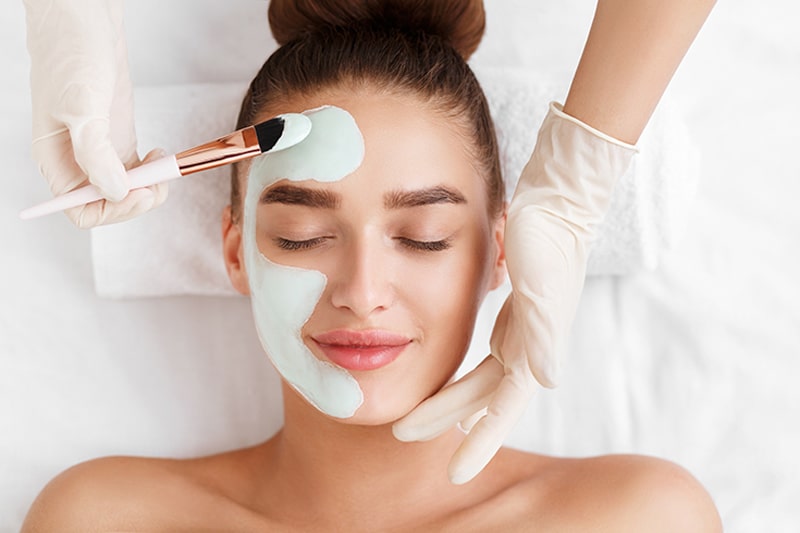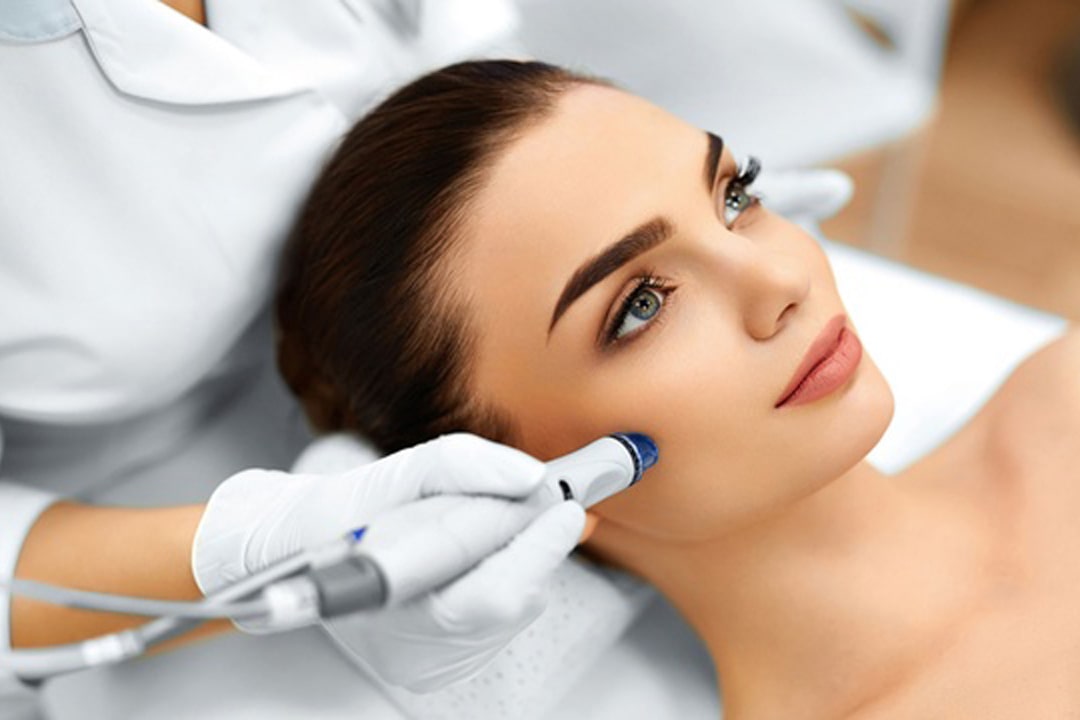
Nail Technician
Educational Objectives
The education system at Dalton Institute includes a hands-on learning facility, experienced and competent instructors, and a comprehensive curriculum. The program prepares students on the foundational concepts and practices to learn techniques for achieving unique and appealing nail art and nail designs. Our educational objectives for the Nail Technology Program are:
• To educate students to be professional, knowledgeable, and skilled for employment within the industry.
• To maintain a program that is constantly updated so students will have comprehensive knowledge to compete in the field of nail technology.
• To promote the educational growth of the students using current teaching methods and techniques.
• To teach students to perform the basic manipulative skills in the areas of manicuring and pedicuring.
• To teach courtesy and professionalism as the foundation of a successful career.
• To prepare the student to successfully pass the State Licensing Exam for entry level.
Grading Procedure
Academic learning is evaluated after each unit of study by a written exam. Practical assignments are evaluated as completed and counted toward course completion only when rated as satisfactory. If the performance does not meet satisfactory requirements, it is not counted, and the performance must be repeated. At least two comprehensive practical skills evaluations will be conducted during the course of study. Practical skills are evaluated according to text procedures and include Manicuring with polish, Nail Wraps, Sculptured Nails, and Nail Tips.
• Students must pass with a 75% to be making academic satisfactory progress and to be eligible for graduation.
• Students must maintain a written grade average of 75% and pass a FINAL written exam prior to graduation.
• Students must make up any failed or missed exams.
Numerical grades are considered according to the following scale:
A 90-100%
B 80-89%
C 75-79%
F 74% and Below
The curriculum for students enrolled in the Nail Technology program will exceed minimums set by the state of Georgia and will include 600 hours of practical training and technical instruction covering all aspects of the industry. Level 1 Instruction shall be provided by a licensed master cosmetology instructor or licensed nail technician instructor. The first 140 clock hours are termed Level I. During this time, students are in group theory classes designed to provide them with the information needed to pass the written portion of the State Board Exam. At the conclusion of 140 clock hours, students must be able to demonstrate the correct procedures of the practical tasks learned in Level I and pass all given written tests with a minimum of 75%. Upon completion, students are moved to the clinic floor.
Students may now work with clients and perform learned tasks on paying customers. The school offers a minimum of four hours of theory training per week for the entire enrollment time of each student. Instructors are constantly present to further demonstrate, supervise, and inspect students’ work. See the Hours Requirement Breakdown for a specific program for a more detailed description of the remaining hours of coursework. Students attend day class until the completion of 600 hours.
Level 1 Total Hours: 215
THEORY - 215 HOURS:
• PERSONAL HYGIENE, PROFESSIONAL ETHICS, AND CUSTOMER RELATIONS,
• SANITATION, CLEANSING, DISINFECTION, AND STERILIZATION, PUBLIC HEALTH AND SAFETY, INFECTION CONTROL AND BACTERIOLOGY,
• AIDS, HIV, AND OTHER COMMUNICABLE DISEASES, EPA, OSHA, OTHER GOVERNMENT STANDARDS;
• BLOOD SPILL PROCEDURE,
• PHYSIOLOGY AND ANATOMY, INCLUDING THAT OF THE HANDS, ARMS, FEET, AND LEGS,
• THE ART OF MASSAGE AND MASSAGE TECHNIQUES, INTRODUCTION TO REFLEXOLOGY,
• NAIL COMPOSITION AND STRUCTURE, NAIL DISORDERS AND NAIL DISEASES,
• CHEMISTRY, INCLUDING PRODUCT KNOWLEDGE, COMPOSITION, USAGE, SAFETY, AND HAZARDOUS MATERIALS,
• METHODS AND PROCEDURES AND IMPLEMENTS, INCLUDING THEIR USAGE AND SAFETY,
• SALON BUSINESS,
• SALON DEVELOPMENT AND BUSINESS OPERATIONS,
• CLIENT CONSULTATIONS,
• BUSINESS DEVELOPMENT,
• MARKETING, ADVERTISING AND RETAILING,
• CAREER/BUSINESS PLANNING, INCLUDING PREPARATION FOR INTERVIEWS, RESUME WRITING, GOAL SETTING,
• GEORGIA STATE BOARD OF COSMETOLOGY LAWS AND RULES, AND GOAL SETTING,
• GEORGIA STATE BOARD OF COSMETOLOGY LAWS AND RULES
After the student has successfully completed 215 clock hours in the above curriculum with a passing score of 75 percent, the student may progress to the clinic floor to perform clinical services on patrons. The curriculum shall be as follows:
LEVEL 2 Total Hours: 385
1. SANITIZING AND DISINFECTION OF TOOLS, IMPLEMENTS, AND EQUIPMENT – 5 Clock Hours
2. MANICURE WITH HAND & FOREARM MASSAGE (Basic, Hot Oil, & Various SPA Manicures) – 70 (70 Clock Hours/70 Applications)
3. PEDICURE WITH FOOT AND LEG MASSAGE (Basic and Various SPA Pedicures) – 60 (60 Clock Hours/60 Applications)
4. NAIL SCULPTING - 60 (60 Clock Hours/30 Applications)
5. ARTIFICIAL TIP APPLICATION WITH OVERLAY - 60 (60 Clock Hours/30 Applications)
6. NAIL WRAPPING (Silk, Linen, etc. on Natural Nails Only) – 20 (20 Clock Hours/20 Applications)
7. FILL-IN APPLICATION – 40 (40 Clock Hours/40 Applications)
8. ARTIFICIAL NAIL REMOVAL/NAIL REPAIR - 10 (10 Clock Hours/20 Applications)
9. PROFESSIONAL NAIL DRILL USAGE WITH PROFESSIONAL DRILL DESIGNED FOR FINGERNAILS ONLY - 5 (5 Clock Hours/10 Applications)
10. NAIL ART TECHNIQUES – 5 (5 Clock Hours/5 Applications)
11. AIRBRUSH NAIL ART – 5 (5 Clock Hours/5 Applications)
12. PARAFFIN TREATMENTS ON HANDS AND FEET - 5 (5 Clock Hours/10 Applications)
13. STUDENT COMPETITION: ADVANCED TECHNIQUES AND RELATED SUBJECTS – 20 (20 Clock Hours/20 Applications)
Note: Hours and applications are to apply to a full set only
Total Hours = 600
Nail Technology Syllabus
| Week | Subject |
| 1 | Orientation & Life Skills. |
| 2 | Your Professional Image & State Board Rules & Laws |
| 3 | Communicating for Success & Seeking Employment |
| 4 | On the Job & The Salon Business. |
| 5 | 5 Infection Control: Principles and Practices. |
| 6 | Anatomy and Physiology. |
| 7 | Skin Structure and Growth & Nail Structure and Growth. |
| 8 | Nail Diseases and Disorders. |
| 9 | Chemistry & Nail Product Chemistry. |
| 10 | Manicuring & Pedicuring. |
| 11 | Electric Filing & Nail Tips and Wraps |
| 12 | Monomer Liquid and Polymer Powder Nail Enhancements. |
| 13 | UV Gels. |
| 14 | The Creative Touch |
| 15 - 16 | Review and State Board Preparation |
Course Curriculum
All courses taught at Dalton Institute will be offered in the English language.
There are:
600 total hours of coursework required for Nail Technology students.
When coursework has been successfully completed and all fees have been paid, students will then be eligible to take the GA State Board Exam. The Georgia State Board evaluates practical work, theory comprehension, and state board rules and laws.
Dalton Institute of Esthetics and Cosmetology utilizes the Milady curriculum for each course. The books are as follows:
Milady Standard Nail Technology, 7th Edition- ISBN-13:9781285080475
Teaching Methods
Our school provides many teaching methods to offer you a comprehensive education, regardless of your learning style. The academic programs are designed to provide theoretical training and practical applications to instill good work habits, ethics, and professionalism. These methods include Interactive Lecture, Demonstration, Individualized Instruction, Group Discussion, Question and Answer, Role Playing, Field Trips, Guest Speakers, Problem Solving, Assignments, and Stories/Testimonials. Dalton Institute of Esthetics and Cosmetology believes that for our students to succeed, they will experience a three-step approach to our education model:
Students will:
LEARN IT with lectures and visual aids,
WATCH IT with live demonstrations by instructors and guest presenters, and
DO IT by performing services on mannequins and real clients.
Tuition and Other Costs
Program Costs:
Nail Technology – $8,500
Administrative Fee for all students: Application Fee $20.00 (Non-Refundable)
Administrative Fee for all TRANSFER students: Registration Fee $125.00 (Non-Refundable)
WITHDRAWAL FEE FOR ALL PROGRAMS: Withdrawal Fee $100.00 (Non-Refundable)


